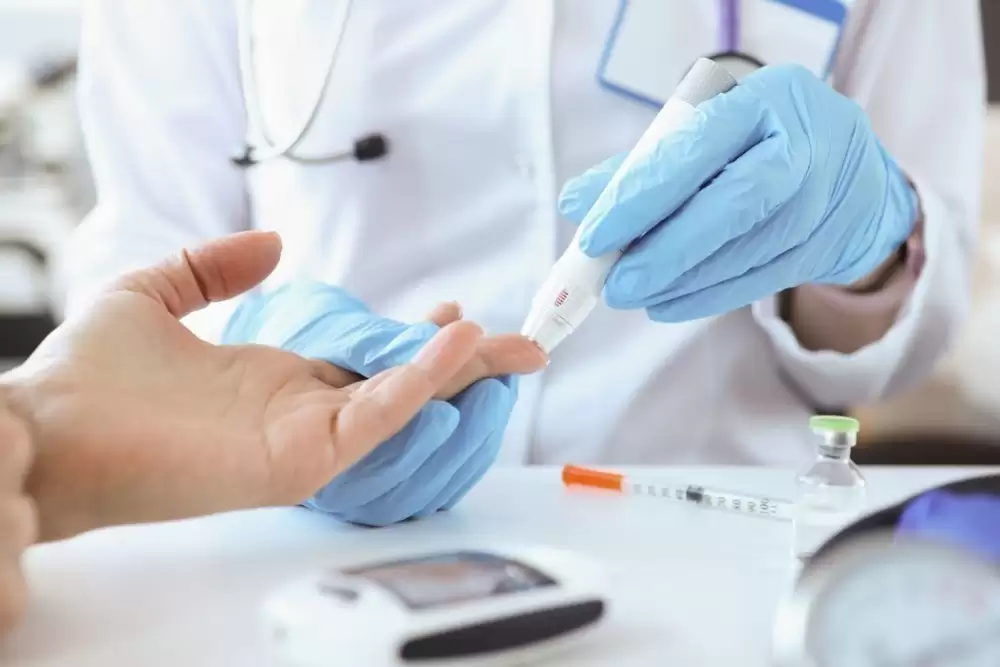Best Endocrinologist Near Me: Finding Top Medical Specialists
Wiki Article
Navigating the Complexities of Thyroid Conditions With an Endocrinologist
In this article, we will discover the relevance of looking for expert help from an endocrinologist when dealing with thyroid problems. We will certainly delve right into the understanding of different thyroid disorders, the value of precise diagnosis, and the readily available treatment options. In addition, we will go over the ongoing monitoring and support required for individuals with thyroid problems.Comprehending Thyroid Disorders
Thyroid disorders can be better understood with guidance from an endocrinologist. Hypothyroidism, for example, takes place when the thyroid does not produce sufficient hormonal agents, resulting in symptoms such as tiredness, weight gain, and depression.Comprehending thyroid problems needs a comprehensive evaluation of a person's medical history, physical exam, and laboratory examinations. This is where the competence of an endocrinologist becomes vital. Endocrinologists specialize in the medical diagnosis and therapy of hormone problems, including thyroid disorders. They possess the understanding and experience to properly interpret laboratory outcomes, identify the underlying root cause of the condition, and recommend suitable treatment choices.
Additionally, endocrinologists know with the most current improvements in thyroid research study, which enables them to provide the most current and reliable therapy approaches. Texas endocrinology. They can prescribe drug to control hormone degrees, suggest way of living modifications, and deal assistance on managing signs and symptoms. In more complex instances, they may team up with various other specialists to make certain thorough care

Relevance of an Endocrinologist
An endocrinologist plays an essential duty in the medical diagnosis and administration of thyroid disorders, offering customized experience and understanding in hormonal disorders. With their extensive training in the endocrine system, these doctor are uniquely qualified to treat and analyze thyroid problems.Among the key reasons that an endocrinologist is necessary in the administration of thyroid problems is their capacity to accurately detect the problem. Thyroid disorders can be complex, with signs that may overlap with other clinical problems. An endocrinologist has the proficiency to conduct a comprehensive assessment, including a detailed case history, checkup, and specialized tests to properly diagnose the certain thyroid disorder.
Moreover, an endocrinologist is equipped to establish a customized treatment strategy for each individual client. They consider elements such as the type and extent of the thyroid disorder, the patient's general wellness, and their preferences. This tailored approach makes sure that the therapy plan is maximized for the patient's certain demands, resulting in far better outcomes.
In addition to medical diagnosis and therapy, an endocrinologist also plays a critical role in long-lasting monitoring of thyroid disorders. They keep an eye on the person's thyroid hormone levels, change drug dosages if required, and supply recurring support and education to assist individuals effectively manage their condition.
Identifying Thyroid Problems
The endocrinologist's expertise encompasses precisely detecting thyroid problems via an extensive examination, consisting of a thorough case history, health examination, and specialized tests (endocrinologist in liberty hill). This approach allows the endocrinologist to gather vital details concerning the patient's symptoms, medical background, and household history, which can provide useful understandings right into the prospective root causes of the thyroid disorderDuring the health examination, the endocrinologist will meticulously examine the patient's neck for any indicators of swelling or problem in the thyroid gland. They may also check for other physical indications, such as changes in hair structure, skin dryness, or protruding eyes, which can be a measure of thyroid problems.
In addition to the case history and physical exam, the endocrinologist may order specialized examinations to more review the function of the thyroid gland. These examinations might include blood examinations to gauge the degrees of thyroid hormonal agents, thyroid-stimulating hormonal agent (TSH), and antibodies that may be related to autoimmune thyroid problems. Imaging tests, such as ultrasound or nuclear medicine scans, might also be performed to evaluate the dimension, shape, and framework of the thyroid gland.
Treatment Alternatives and Administration
The choice of therapy depends on the particular type and intensity of the thyroid problem, as well as private patient factors. In cases of hypothyroidism, where the thyroid gland does not create adequate thyroid hormonal agents, the most usual treatment is hormone substitute therapy.For hyperthyroidism, where the thyroid gland creates excessive amounts of thyroid hormonal agents, therapy options consist of medicines, radioactive iodine therapy, or surgical procedure. Medications, such as beta blockers, can be suggested to manage signs and decrease the manufacturing of thyroid hormones. Contaminated iodine treatment involves taking a radioactive substance that is uniquely absorbed by the overactive thyroid cells, damaging them. Surgical treatment may be suggested in specific instances, such as when there are lumps or nodules present in the thyroid gland.
In addition to these conventional treatments, there are additionally alternative therapies that some people may think about, such as natural supplements, acupuncture, or nutritional modifications. Nonetheless, Website it is necessary to note that these alternate therapies must be discussed with an endocrinologist to guarantee they are efficient and risk-free.
Long-Term Treatment and Support
Long-lasting treatment and support for individuals with thyroid problems includes recurring surveillance and tailored treatment prepares given by an endocrinologist. After a preliminary diagnosis and treatment, it is vital for clients to proceed obtaining normal follow-up care to ensure that their thyroid feature continues to be secure and that any type of possible difficulties are identified and resolved without delay.
Routine tracking of thyroid hormonal agent degrees via blood tests enables the endocrinologist to evaluate the performance of the treatment plan and make any kind of essential modifications. This close surveillance also makes it possible for the very early detection of any changes in thyroid feature and the identification of possible regressions or issues, such as the advancement of blemishes or the development of thyroid cancer cells. Relying on the specific demands of the person, monitoring may occur every get redirected here couple of months or on a yearly basis.

Final Thought
With their knowledge and experience, endocrinologists can provide long-lasting care and support to individuals with thyroid disorders. By seeking the assistance of an endocrinologist, patients can obtain the required treatment and management to properly navigate their thyroid disorder. Endocrinologist in georgetown.
Report this wiki page